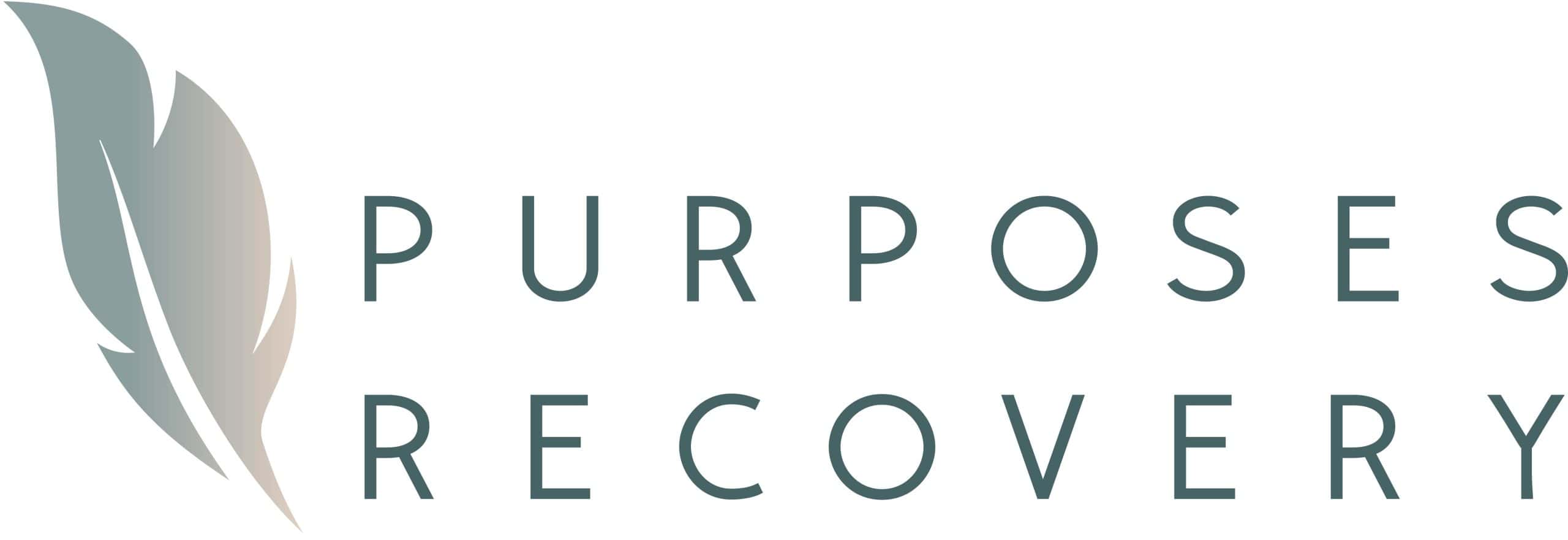Dual Diagnosis Rehab Centers Near Me: Dual Diagnosis Treatment Center in Los Angeles, California

Dual Diagnosis Treatment Los Angeles California
Dual diagnosis, also commonly known as “co occurring disorder,” describes the simultaneous presence of a psychiatric condition and a substance abuse disorder in an individual. This complex interplay between mental health and addiction can create a challenging cycle where individuals may inadvertently use substances as a coping mechanism to manage overwhelming mental health symptoms, such as chronic depression, pervasive anxiety, or post-traumatic stress. This self-medication can often exacerbate their mental health conditions and further entrench their addiction, leading to a downward spiral.
Our dual diagnosis treatment center provides safe and comfortable dual diagnosis treatment for adults and young adults 18 years and older. To ensure that our patients receive specialized behavioral health care to meet their needs, every person who attends our dual diagnosis treatment center in Los Angeles undergoes an assessment from a member of our clinical team to address their unique needs.
What is Dual Diagnosis Treatment?
Dual diagnosis treatment is a specialized approach to substance abuse treatment that addresses both a mental health disorder and a substance use disorder simultaneously. This integrated treatment model recognizes that these two types of disorders often occur together and are deeply interconnected, influencing and exacerbating each other. Traditional treatment methods that addressed these issues separately often failed to provide effective outcomes for individuals struggling with both conditions. The dual diagnosis treatment program at our drug rehab center aims to improve these outcomes by offering a comprehensive, coordinated plan that tackles the complexities of both substance use disorder and mental health conditions at once.
The core principle behind dual diagnosis treatment is that effective recovery involves treating both the mental health issue and the substance abuse problem in tandem. This approach can include a combination of therapeutic strategies, such as cognitive-behavioral therapy, medication assisted treatment (addiction medicine), medication management, trauma focused therapy, individual counseling, group therapy, and support groups, among others. The goal is to provide a holistic treatment plan that addresses the individual’s physical, psychological, and social needs.
Our dual diagnosis treatment centers in Los Angeles, California, have a multidisciplinary team that includes psychiatrists, psychologists, addiction specialists, counselors, and social workers. This team works together to create a personalized treatment plan for each client, which can include detoxification services, psychiatric care for mental health disorders, psychotherapy for psychological issues, and support for developing healthier coping mechanisms and lifestyle changes.
By focusing on both the mental health disorder and the substance use disorder, dual diagnosis treatment aims to reduce symptoms, improve overall health and well-being, and promote long-term recovery. This approach acknowledges the complexity of dual diagnosis and provides a more effective framework for individuals to achieve a healthier, more stable life.
What Are Common Mental Health Issues That Are Linked to Substance Use Disorders?
Substance use disorders often co-occur with various mental illnesses. This condition of having both a mental illness and a substance use disorder simultaneously is known as a co-occurring disorder or dual diagnosis. The relationship between a substance use disorder and mental illness can be complex, with each influencing the onset, progression, and outcome of the other. Here are some common mental health disorders that are frequently linked to substance use disorders:
- Depressive Disorders: Individuals with depressive disorders, such as major depressive disorder, may turn to drugs or alcohol as a form of self-medication to alleviate their symptoms. Conversely, substance use can exacerbate or trigger depressive episodes.
- Anxiety Disorders: Anxiety disorders include generalized anxiety disorder (GAD), panic disorder, and social anxiety disorder, among others. People with anxiety disorders may use substances to relieve their anxiety, though substance use can increase anxiety levels over time.
- Bipolar Disorder: Characterized by extreme mood swings, individuals with bipolar disorder may use substances during manic or depressive episodes as a coping mechanism. Substance use can worsen the severity and frequency of these episodes.
- Post-Traumatic Stress Disorder (PTSD): Individuals with post-traumatic stress disorder may use alcohol or drugs to numb their feelings or to avoid traumatic memories. Substance use can interfere with the treatment of post traumatic stress disorder and exacerbate symptoms.
- Attention-Deficit/Hyperactivity Disorder (ADHD): People with ADHD may abuse substances to cope with their symptoms or as a result of impulsive behaviors associated with ADHD. Stimulant medications used to treat ADHD can also be misused.
- Schizophrenia: Substance use, particularly cannabis, has been linked to schizophrenia. It can exacerbate symptoms, interfere with medications, and contribute to poorer outcomes.
- Personality Disorders: Especially borderline personality disorder (BPD) and antisocial personality disorder (ASPD). Individuals with these disorders may use substances due to impulsivity, difficulties in managing emotions, or as a way to self-medicate.
- Eating Disorders: Eating disorders include anorexia nervosa, bulimia nervosa, and binge-eating disorder. Substance use, especially stimulants, may be used to control weight or appetite. Conversely, substances like alcohol can be used to numb feelings related to body image or control.
The relationship between mental health disorders and substance use disorders is bidirectional, meaning that having a mental health disorder can increase the risk of developing a substance use disorder and vice versa. Treatment for co-occurring disorders typically involves a comprehensive approach that addresses both substance use and mental health disorders simultaneously. This can include a combination of psychotherapeutic medications, evidence based treatments, therapy, support groups, and lifestyle changes.
REQUEST A CALL FROM OUR TREATMENT CENTER IN LOS ANGELES CA
Recovery Starts at Our Drug Rehab in Los Angeles CA
"*" indicates required fields
What Can Influence Co-Occurring Disorders?
Several factors can influence the development and progression of co-occurring disorders, which involve the simultaneous presence of two or more disorders, such as a mental health disorder and a substance use disorder. These influencing factors can be broadly categorized into biological, psychological, and environmental aspects, each contributing in various ways:
- Genetic Predisposition: Genetics can play a significant role in the susceptibility to a dual disorder. Individuals with a family history of substance use disorder and mental health issues may have a higher risk of developing co occurring disorders.
- Brain Chemistry and Structure: Abnormalities in brain chemistry or structure can influence the development of mental illness. Substance use can further alter brain chemistry, exacerbating existing disorders or contributing to the development of new ones.
- Psychological Factors:
- Trauma: Experiences of trauma, such as physical or sexual abuse, can lead to mental health disorders like PTSD, which may be coped with or masked by substance use.
- Stress: High levels of stress, whether acute or chronic, can precipitate or exacerbate mental health issues and lead to substance use as a form of self-medication.
- Personality Traits: Certain personality traits, such as high impulsivity or a tendency towards risk-taking, can increase the likelihood of substance use, which can interact with predispositions to mental health disorders.
- Environmental Factors:
- Family Environment: A family environment characterized by substance abuse, conflict, or lack of support can contribute to the development of mental illness and co-occurring disorders.
- Social Networks: Peer pressure and social networks that endorse or normalize substance use can lead to increased consumption, which can interact with mental illness.
- Socioeconomic Status: Lower socioeconomic status and the stresses associated with financial instability, limited access to healthcare, and living in high-risk environments can contribute to the development and exacerbation of co occurring disorders.
- Access to Substances: The availability and accessibility of substances can influence the likelihood of substance use disorders, which can co-occur with mental disorders.
- Cultural and Social Attitudes: Cultural and societal norms and attitudes towards substance use and mental health can impact the recognition, treatment, and stigma associated with co occurring disorders.
- Life Events and Circumstances:
- Major Life Transitions: Events such as the death of a loved one, divorce, or job loss can trigger mental health issues such as major depressive disorder and lead to substance use as a coping mechanism ultimately resulting in co occurring disorders.
- Chronic Medical Conditions: Living with a chronic medical condition can be a significant source of stress and may lead to the development of mental illness and subsequent substance use as a form of self-medication.
Understanding the multifaceted nature of co occurring disorders is crucial for developing effective dual diagnosis treatment and support systems. Integrative treatment approaches that address the broad range of influencing factors—incorporating medical, psychological, and social support—are often the most effective in managing dual diagnosis conditions.
Common Treatment Modalities Used for Addiction and Mental Health Disorders
Recognizing the unique challenges faced by those with a dual diagnosis, integrated addiction treatment plans are specifically designed to address both the psychiatric condition and the substance abuse disorder concurrently. These comprehensive treatment programs typically incorporate a multidisciplinary approach, involving a team of specialists such as masters-level clinicians, psychiatrists, psychologists, addiction counselors, social workers, and medical professionals, who work collaboratively to develop a tailored recovery plan for the individual.
Integrated co occurring disorder treatment at our drug and alcohol rehab center, may involve a combination of evidence-based therapies and support services, including:
Medical Detox
Medical detox is often the initial step in addressing substance abuse, particularly within dual diagnosis treatment centers. This critical phase allows individuals to safely and effectively withdraw from addictive substances under the vigilant medical care of medical staff. In Los Angeles and other parts of Southern California, where the prevalence of substance use and co-occurring mental disorders is notably high, medical detox provides a foundation for a successful addiction recovery. The process is designed to minimize the physical harm caused by withdrawal, ensuring a safe detox that prepares individuals for the next stages of treatment.
Medication-Assisted Treatment (MAT)
MAT is a cornerstone of mental health treatment, addiction treatment and dual diagnosis treatment, especially for those battling severe substance use disorders alongside other mental health issues, such as depression, anxiety, or borderline personality disorder. By utilizing medications to manage withdrawal symptoms, reduce cravings, and address psychiatric symptoms, MAT supports individuals through the initial hurdles of recovery. This treatment approach, offered by dual diagnosis treatment centers, is evidence-based and tailored to each individual’s unique needs, enhancing the overall effectiveness of mental health treatment and addiction treatment.
Psychotherapy
Dual diagnosis rehab programs heavily rely on psychotherapy to address the complex interplay between mental disorders and substance abuse. Therapeutic approaches like cognitive-behavioral therapy (CBT), dialectical behavior therapy (DBT), and trauma-focused therapy are instrumental in helping individuals understand the root causes of their addiction and mental illness. These therapies, conducted by a specialized dual diagnosis treatment team, aim to develop healthier coping mechanisms and improve the individual’s outlook on life, facilitating a more fulfilling and sustained recovery. Psychotherapy is especially important for those struggling with common co occurring disorders that are higher risk including depression, eating disorders, and alcohol use disorder.
Group Therapy
Group therapy sessions within dual diagnosis programs offer a unique space for individuals to share their experiences and challenges with peers facing similar struggles. This collective environment fosters a sense of community, empathy, and mutual support, which are vital components of addiction recovery and managing co-occurring disorders. Treatment centers emphasize the importance of a group therapy treatment approach as a means to build social skills, enhance emotional understanding, and reinforce the journey towards a healthier more fulfilling life.
Family Therapy
Incorporating family therapy into the treatment of co-occurring disorders recognizes the critical role family dynamics play in both the development and recovery from mental illness and substance use disorders. Dual diagnosis treatment centers often include family therapy sessions to mend relationships, improve communication, and establish a supportive home environment essential for long-term recovery. This holistic approach ensures that recovery extends beyond the individual, encompassing the wider network of support crucial for maintaining mental health stability.
Aftercare Services and Relapse Prevention
Aftercare services and relapse prevention strategies are key components of dual diagnosis treatment in Los Angles, ensuring individuals continue to receive support following the completion of a dual diagnosis treatment program at a treatment facility. Our dual diagnosis facility in Los Angeles offers a range of aftercare options, including outpatient treatment, support groups, and sober living arrangements. These services are designed to reinforce the skills learned during the parallel treatment of mental and substance use disorder treatment, provide ongoing support for managing mental health and substance use, and help individuals navigate the challenges of reintegration into daily life. A comprehensive aftercare plan is crucial for sustaining the improvements made during substance use disorder treatment, promoting an improved outlook, and supporting a life free from addiction and mental health challenges.
By addressing both the psychiatric condition and the substance abuse disorder simultaneously, the dual-diagnosis treatment program at our dual-diagnosis treatment centers in Los Angeles aims to provide individuals with the tools, resources, and support necessary for a lasting and successful recovery journey. All addiction therapy programs at our drug addiction treatment center in Los Angeles are tailored to address the unique needs of each individual, fostering a comprehensive approach to recovery that emphasizes healing on physical, emotional, and psychological levels.
Are you or a loved one struggling with addiction to alcohol or other drugs? Call today for a confidential conversation with a treatment specialist.
Addiction Treatment Programs: Residential vs Outpatient Treatment for Dual Diagnosis in Los Angeles, California
Choosing between residential and outpatient treatment in Los Angeles depends on several factors, including the severity of the co-occurring disorders, the individual’s support system, and their daily responsibilities. Residential treatment offers a comprehensive, immersive experience ideal for those with severe conditions or who need a break from their environment to focus solely on recovery. In contrast, outpatient treatment provides flexibility and allows individuals to remain in their home environment, which can be beneficial for those with strong support systems or those transitioning from residential care.
Both treatment options have their place in the recovery journey for individuals with common co occurring disorders in Los Angeles. The choice between them should be made based on the individual’s specific needs, physical health, circumstances, and the professional assessment of a healthcare provider or dual diagnosis treatment team.
Residential Programs
Residential treatment programs provide an immersive therapy experience, offering individuals with co-occurring disorders a structured and supportive environment where they can focus entirely on their recovery. These programs are particularly beneficial for those with severe cases of mental illness and substance use disorder, as they combine the expertise of a dual diagnosis treatment team with the safety and stability of a 24/7 care environment. Located often in serene settings, such as the picturesque landscapes of Los Angeles or the tranquil areas of Southern California, residential treatment centers offer a respite from the triggers and stresses of everyday life, allowing for a deeper focus on healing.
Outpatient Programs
Outpatient treatment programs serve as a flexible and less intensive alternative to residential treatment, catering to individuals with common co occurring disorders who have obligations that prevent them from participating in a live-in program or who are transitioning from residential care. These programs are particularly valuable in the diverse and bustling environment of Los Angeles, California, where individuals may seek to balance their recovery with personal, professional, or educational commitments.
Dual Diagnosis Treatment in Los Angeles at Purposes Recovery
Addressing co-occurring disorders requires an integrated approach that simultaneously treats both mental health and substance use disorders. At our mental health and addiction treatment center in Los Angeles, our comprehensive dual diagnosis program offers personalized care tailored to each individual’s unique needs. By combining medical detox, psychotherapy, group and family therapy, and aftercare services, we aim to support holistic recovery and long-term well-being. Our multidisciplinary team is dedicated to helping individuals achieve stability and a healthier, brighter future. For more information or to begin your recovery journey, contact us today.
Where is Your Dual Diagnosis Treatment Center Located?
Located in Los Angeles, CA, our premier treatment center offers 6 premium beds with panoramic views of Los Angeles. Our treatment center specializes in sub-acute detoxification, drug and alcohol residential rehabilitation, and mental health services for those in need of dual diagnosis treatment. Our services are backed by a 24/7 commitment to tailored, individualized care and relapse prevention services. During your stay at our treatment center in Los Angeles, you’ll enjoy a comfortable living suite overlooking the views of West Los Angeles, luxurious amenities, and gourmet meals by the on-site chef at our treatment center. For more information call (888) 482-0717.
Our Treatment Center in Los Angeles Accepts Most Private Health Insurance Plans
Our treatment center in Los Angeles accepts most health insurance plans to ensure our comprehensive rehabilitation services are accessible to those in need. We believe that financial constraints should not be a barrier to receiving high-quality addiction treatment. Our dedicated team is here to help you maximize your benefits and minimize any out-of-pocket expenses. If you do not have insurance, our team is available to help you explore options available to you.
Medical Reviewer

Eric Chaghouri, M.D.
GET HELP NOW
Are you or a loved one struggling with addiction to alcohol or other drugs? Call today for a confidential conversation with a treatment specialist.
Treatment Programs
MOST INSURANCE ACCEPTED
Free insurance benefit check
"*" indicates required fields
